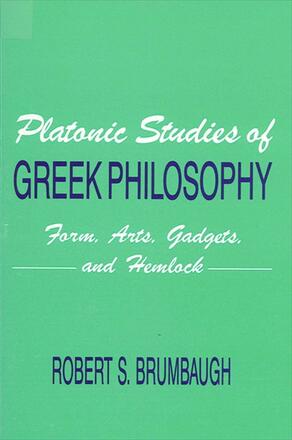
Platonic Studies of Greek Philosophy
Form, Arts, Gadgets, and Hemlock
Alternative formats available from:
Robert S. Brumbaugh is Professor of Philosophy at Yale University.
Reviews
"Platonic Studies is a tour de force of contemporary philosophy, combining painstaking analyses of Platonic and Aristotelian texts with imaginative reconstruction. It links a revisionary interpretation of the ancient social, scientific, and technological setting for Greek philosophy with trenchant 'Platonic' criticisms of contemporary conditions. Technical analyses, such as that of the mathematical ratios structuring the argument of a dialogue, are lightened with personal observations about what attracted the author's original interest to the problem. A recurrent motif throughout these essays is a brilliant and deliberate strategy of positioning each of the topics to show why they are of interest to a contemporary reader—not only for current applicability but because our own experience opens us to appreciate the ancient Greek world in ways often opaque to our predecessors. A persuasive part of Brumbaugh's Platonism is that his topics are interesting and valuable in themselves, and knowing about them is thus intrinsically worthwhile. This is a truly extraordinary book by an extraordinary thinker. " — Robert C. Neville, SUNY, Stony Brook
"Brumbaugh has an uncanny ability to shed new light on familiar works, such as The Republic. He shows the reader how to look at Plato's dialogues in terms of the characters in the drama as well as the direct illustration of method and ideas. " — Brian Hendley, University of Waterloo, Ontario